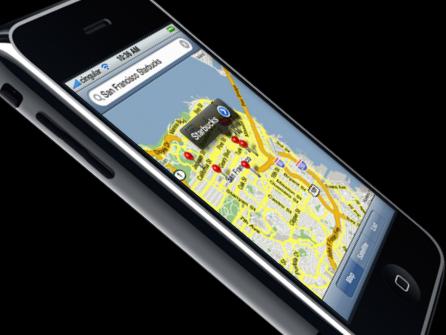The Cloud hails iPhone traffic; looks to WiMAX
Apple's device making 'huge difference' to traffic

Hotspot vendor The Cloud says the iPhone is making a “huge difference” to its data traffic. It also says it's looking to the future and thinking about possibilities with WiMAX.
We spoke to Owen Geddes, development director at The Cloud, about the Wi-Fi hotspot market going forward. He told us that devices are a crucial component for ease of access. “It doesn’t matter what you do with the networks.
"At the end of the day if the devices aren’t there - the devices with the right sort of interface - you’re going to get absolutely nowhere. And again, [the] iPhone is making a huge difference to the user experience."
Geddes said that Apple had gained by initially removing operators from the way the iPhone was developed, especially with regards to the user experience. “It’s very much an Apple product," he said. It’s very different from everything else on the market.”
Speaking about the impact of iPhone traffic, Geddes said it was “very obvious” that take up of hotspot access has increased: “Certainly data increases. We see an enormous amount of YouTube across our network from iPhones. We just don’t see that from other devices…because it is so easy to use.”
Hotspots to support WiMAX devices?
When we quizzed Geddes about the future impact of WiMAX on out-and-about internet access, he said The Cloud would be keeping tabs on development, especially with Intel implementing native WiMAX support within the next edition of the Centrino platform.
Get daily insight, inspiration and deals in your inbox
Sign up for breaking news, reviews, opinion, top tech deals, and more.
“[We] will absolutely be involved in that space,” said Geddes. “We see our business evolving onto other areas including WiMAX. In the end, the user will [do things] the way that they want in a much more open model.”
However, he warned that the technology needs to become established in more devices first, “WiMAX doesn’t really happen until it’s integrated in more mobile-orientated devices. For the same reason Wi-Fi [has] only really started to happen in the mobile market with devices like the iPhone.
"There’s a clear difference between the business traveller market which is PC-orientated and the consumer market which is driven by smaller devices.”
“It’s going to be very interesting to watch that space.”
Geddes also said that services will become more integrated – at least that’s how it will seem to the end user. “They don’t have to worry if they’re connected via cellular or WiMAX,” he added.
He also stressed the importance of intelligent devices, able to make informed decisions about whether to connect using cellular, Wi-Fi or other technologies depending on what is cheapest or best for the user’s needs. “Something we’re doing later this year is releasing some technology into the market that will actually select networks and authenticate you onto a variety of networks."
Geddes added that it would “also work hand in hand with the cellular [provider] of that device” to select the best method. “Whether that’s The Cloud or somebody else - from our perspective it’s [about] a better service for the end user that’s absolutely vital.”
Dan (Twitter, Google+) is TechRadar's Former Deputy Editor and is now in charge at our sister site T3.com. Covering all things computing, internet and mobile he's a seasoned regular at major tech shows such as CES, IFA and Mobile World Congress. Dan has also been a tech expert for many outlets including BBC Radio 4, 5Live and the World Service, The Sun and ITV News.